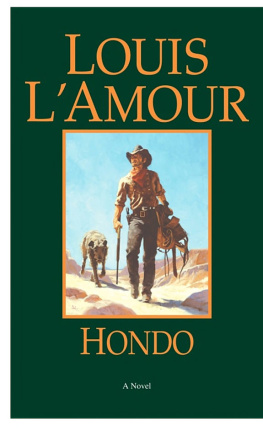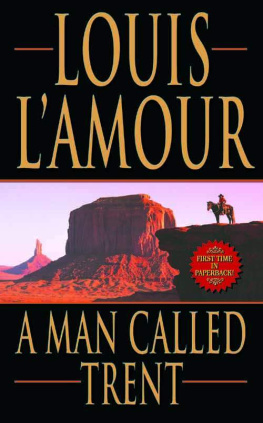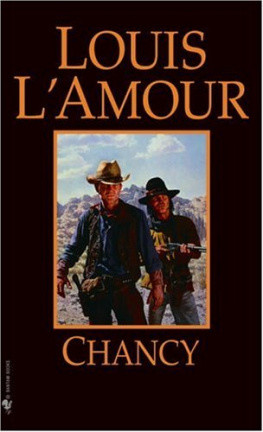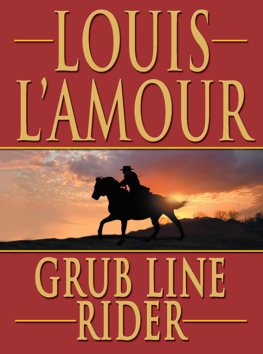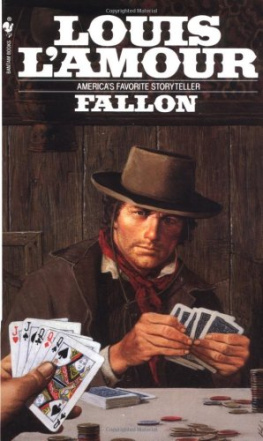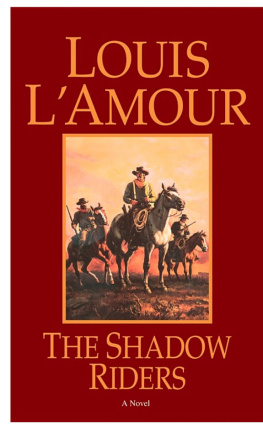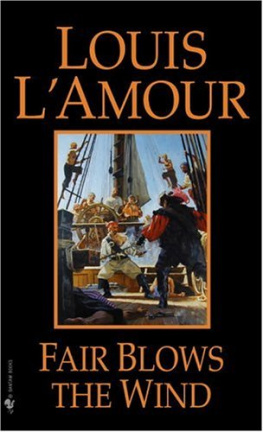Louis LAmour - North to the Rails: Talon and Chantry Series, Book 7
Here you can read online Louis LAmour - North to the Rails: Talon and Chantry Series, Book 7 full text of the book (entire story) in english for free. Download pdf and epub, get meaning, cover and reviews about this ebook. year: 2004, publisher: Bantam, genre: Adventure. Description of the work, (preface) as well as reviews are available. Best literature library LitArk.com created for fans of good reading and offers a wide selection of genres:
Romance novel
Science fiction
Adventure
Detective
Science
History
Home and family
Prose
Art
Politics
Computer
Non-fiction
Religion
Business
Children
Humor
Choose a favorite category and find really read worthwhile books. Enjoy immersion in the world of imagination, feel the emotions of the characters or learn something new for yourself, make an fascinating discovery.

- Book:North to the Rails: Talon and Chantry Series, Book 7
- Author:
- Publisher:Bantam
- Genre:
- Year:2004
- Rating:5 / 5
- Favourites:Add to favourites
- Your mark:
- 100
- 1
- 2
- 3
- 4
- 5
North to the Rails: Talon and Chantry Series, Book 7: summary, description and annotation
We offer to read an annotation, description, summary or preface (depends on what the author of the book "North to the Rails: Talon and Chantry Series, Book 7" wrote himself). If you haven't found the necessary information about the book — write in the comments, we will try to find it.
North to the Rails: Talon and Chantry Series, Book 7 — read online for free the complete book (whole text) full work
Below is the text of the book, divided by pages. System saving the place of the last page read, allows you to conveniently read the book "North to the Rails: Talon and Chantry Series, Book 7" online for free, without having to search again every time where you left off. Put a bookmark, and you can go to the page where you finished reading at any time.
Font size:
Interval:
Bookmark:
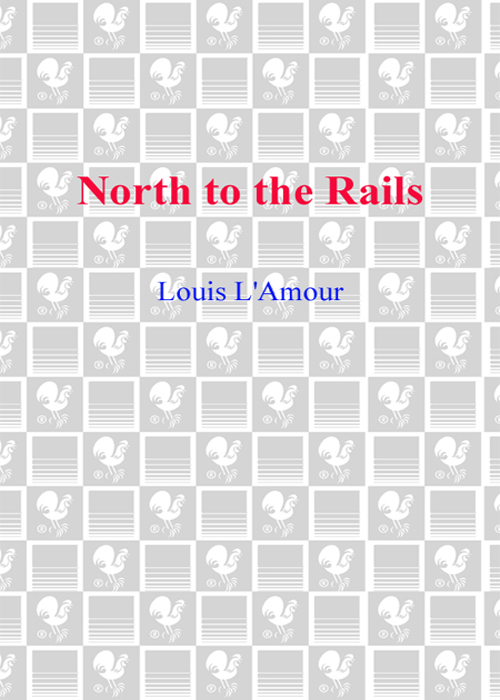
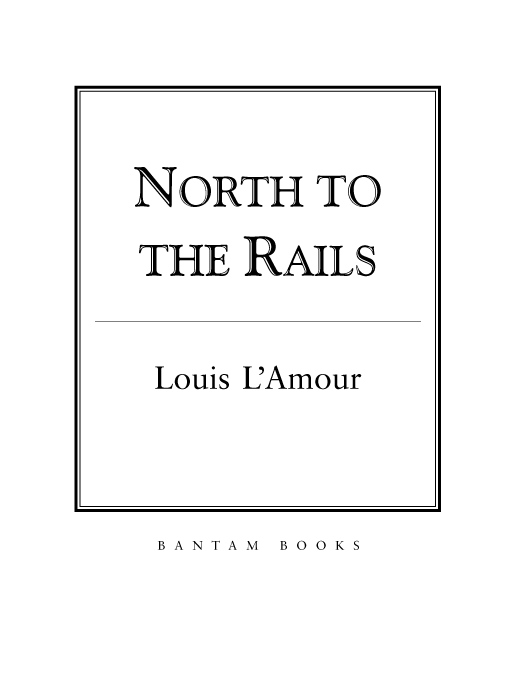
Contents
N OT A FRAID TO F IGHT
B ETTER TAKE SOMEBODY along to wipe your nose, Koch remarked. Theres some mighty mean men hang out at Clifton.
From one of the others he might have ignored it, but after Kochs remark of the day before Tom Chantry was in no mood for it. He put down his cup.
Koch, he said, I dont believe in killing men. Ive no such feelings about giving one a whipping when he asks for it.
For a moment the camp was slack-jawed with amazement. Koch stared at him. You gone crazy? Are you talkin to me?
To you, Chantry got to his feet. Just take off your gun belt.
Koch put down his plate and unbuckled his belt. This here, he said, is goin to give me pleasure.
He got up, placing his gun belt on the ground, and he swung from that position. The blow was totally unexpected, and caught Chantry on the chin. His heels flew up and he hit the dust on the back of his shoulders, Koch rushing up to stamp on him. The cow-punchers first kick caught Chantry on the shoulder. It was the first time he had ever been kicked, and suddenly he realized that all he knew of fighting would do him no good unless he got into action fast.
To all the pioneers whose
journals and letters have done
so much to provide me with material
Chapter 1
T HEY COULD CALL it running away if they wanted to, but it made no sense to kill a man, or risk being killed over something so trivial. He had never used a gun against a man, and did not intend to begin now.
He glanced back, but the town lay far behind him, and there seemed to be no reason for pursuit.
Dawn would be breaking soon, and they would be expecting him on the street to face Dutch Akin, and Dutch would certainly be there, right in the middle of that Las Vegas street, a gun ready to his hand.
It was a savage custom, a ridiculous custom. His mother had been right to take him away from it, back to the eastern city where her family lived. She had never loved the Westnot really.
He had been a fool to come west, even on business. But how could he have imagined he would run into trouble? Though he rarely took a drink, and was not inclined to argue, he had taken a drink while waiting for either Pearsall or Sparrow, and he had gotten into an argument. All righthe had made a mistake, but how was he to know they would make so much out of so little?
To hell with Dutch Akin, and with Las Vegas! He would be damned if hed get himself killed over a few careless words in a saloon. It made no senseno sense at all.
What would they say when they realized he was gone? When he failed to appear? At the thought, his ears reddened and he felt uncomfortable.
To hell with them! It was better to be a live coward than a dead hero.
Cowardthe word rankled. Was he a coward? Had he been afraid? He searched himself for an answer, and found none. He did not believe he was a coward. He had come away to avoid a ridiculous situationor was he just telling himself that? Was he not actually afraid?
He seemed to feel his fathers eyes upon himthose cool, thoughtful eyes that knew so well how to measure a man and judge what he had in him.
He remembered his father, the day they brought him home on a shutter, still alive, but badly shot up. There had been three men. One of them had taken a drink, waved a bottle, and staggered, but when Borden Chantry had come to arrest him the man suddenly dropped his bottle and two other men stepped from ambush, and his father had gone down in a wicked crossfire. He got off one shot, that was all. The three men had then fled the town.
His father had lived for two days in considerable pain before the doctor arrived from the fort; by the time he got there his father was dead.
It was as his mother had told him: if you lived by the gun you died by the gun.
But he remembered overhearing someone say as they left the cemetery, Id hate to be in their boots when Tom Chantry grows up!
His father had been a cattleman, reasonably successful by any mans standards, but then had come the great freeze-up, and when the snow melted his father was a poor man, and so were a lot of others. Cattlemen could always get credit, and when they sold their herds they paid up; only Pa had no herd to sell.
The men of the town respected him, knew he had a family to feed, and they also knew that he was a man good with a gun, so they offered him the job of town marshal.
For six years he ran the town, and kept it free of serious trouble. He rarely had to draw his gun, and several times he held his fire to give the other man a chance to drop his, and they usually didall but one.
That man elected to fireand missed. Borden Chantry did not miss.
That was the shooting that led to his death, for the men who came up the trail to kill him were friends of the dead man, and they staged the ambush that wiped out Borden Chantry.
It did no good to remember all that. Tom Chantry touched his horse with a spur. It would soon be light and he wanted to be far away before they discovered he was gone. He had been a fool to come west in the first place. Both Ma and Doris had tried to talk him out of it, but there was a shortage of beef in the East and he had argued with Earnshaw that they could buy it on the plains. No use dealing with a middleman.
Doris father was Robert Earnshaw, a dealer in livestock in New York City. Lately he had branched out into real estate and banking, although livestock was still the backbone of his business. He had been quick to recognize the profit to be had if Tom Chantry could go west, buy cattle on the plains, and ship them east, and Tom had come west with his blessing.
Beef had been scarce in Kansas, but a cattleman told him of a herd that was being held outside of Las Vegas, New Mexico that still might be had. The owners, Pearsall and Sparrow, had been holding the cattle to speculate, but now were in a bind for money. Tom Chantry had immediately left for Las Vegas, sending a message ahead to make the appointment with the prospective sellers.
He had registered at the hotel and gone at once to the saloon where cattlemen were known to gather, and where Sparrow had said they would meet. While he waited, he had a drink.
Dutch Akin had come in, bumping him hard as he lurched up to the bar, then turning to glare at him with a muttered reference to a dude.
Tom Chantry ignored the rudeness, although he felt irritation mounting within him. He edged over a little without seeming to do so, giving Akin more room. He knew he should go, but he had come all this way to see Sparrow, and the man was expected. It was simple courtesy for him to waitso he waited.
Chantry had finished his drink, hesitated, then ordered another. He had not eaten since early that morning and knew that he should not have that second drink, but he was embarrassed to stay at the bar without ordering.
By the time he had finished his drink Sparrow had not come, so he started to turn away from the bar. Without warning a rough hand grasped his shoulder.
Suddenly furious, Chantry turned around sharply. Akin was grinning at him. Dude, diden you hyar me? I invited you to drink wime.
Sorry, I didnt hear, but Ive had enough, thank you.
Ive had enough, thank you. Akin put his hand on his hip and aped the words in a falsetto; then his voice changed. Ill tell you when youve had enough! Now belly up to the bar an drink!
Next pageFont size:
Interval:
Bookmark:
Similar books «North to the Rails: Talon and Chantry Series, Book 7»
Look at similar books to North to the Rails: Talon and Chantry Series, Book 7. We have selected literature similar in name and meaning in the hope of providing readers with more options to find new, interesting, not yet read works.
Discussion, reviews of the book North to the Rails: Talon and Chantry Series, Book 7 and just readers' own opinions. Leave your comments, write what you think about the work, its meaning or the main characters. Specify what exactly you liked and what you didn't like, and why you think so.

